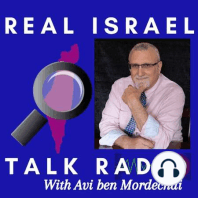50 min listen

The Dead Sea Scrolls PART 9: Travel Chronology of Acts Chapter 20 and the Tzadok 50-Day Count of the Omer
The Dead Sea Scrolls PART 9: Travel Chronology of Acts Chapter 20 and the Tzadok 50-Day Count of the Omer
ratings:
Length:
50 minutes
Released:
Jan 8, 2022
Format:
Podcast episode
Description
As you likely know, the annual 50-Day Count of the Omer is one of many controversial issues between those who observe the traditional rabbinic lunisolar calendar and those who observe any one of several other counting traditions. The point that I am going to make on this program today is that Sha'ul and his ministry companions were all observing the Dead Sea Scrolls Qumran House of Tzadok 364-day solar calendar. Jewish oral tradition teaches that the 50-Day Count of the Omer begins on the day after the first day of Unleavened Bread or the first day of the Festival of Matza. Since Unleavened Bread always starts on the 15th day of the first month of the biblical new year (see Exodus 12:2), therefore, the 50-Day and 7-Sabbaths Count of the Omer always begins on the 16th day of the first month.Today, we will take a deep dive into Acts 20:2-12 and learn from the narrative that Sha'ul (Paul) and his ministry companions were not observing the official and traditional rabbinic reckoning of the festival seasons. If they were, this would require them to observe the sighted moon as a counting system. Instead, they observed a 364-day solar calendar reckoning, which is pretty evident in the narrative's chronology. To follow the details of this biblical study here is a First Chodesh ("Month") Tzadok calendar link to help you follow along with all the details that I am speaking about. ---> https://zadokway.com/full-calendar-monthly-breakdown/---> https://www.cominghome.co.il/tzadok-solar-calendarsToday, join us for our biblical study in the 50-Day and 7-Sabbaths Count of the Omer in Acts Chapter 20 according to the Dead Sea Scrolls Qumran Community House of Tzadok teachings from the Book of Jubilees. This program is Real Israel Talk Radio Episode 105 and Dead Sea Scrolls Program Part 9 in the Dead Sea Scrolls series. Support the show (https://www.paypal.com/biz/fund?id=23WBKCMBHKDT8/Ancient Roads: Real Israel Talk Radio)
Released:
Jan 8, 2022
Format:
Podcast episode
Titles in the series (100)
Defining Transgression in the Bible by Ancient Roads: Real Israel Talk Radio